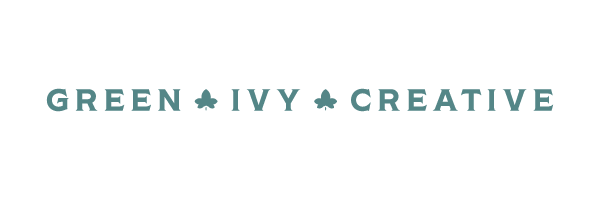Keeping it 100. Is that still a saying?
I’ve been in the marketing industry for over a decade and in that time, as you could imagine, I’ve seen a lot. As a big fan of transparency, I’m sharing some of the biggest things about websites I wish all small business owners knew. Keep in mind, I’m not an attorney or business manager or whatever, so this isn’t legal advice, yadda, yadda.
1. You Need a Website

Yes, even if you’re not doing e-commerce. Customers, partners, and vendors need a place to find you online that isn’t just your social media page(s). A website acts as the central location for everything about your business, including but not limited to sharing:
- What you offer
- What areas you serve
- Why you’re in business
- When you’re open
- How to contact you
- Why someone should support your business
2. Prioritize Your Website
Something I hear a lot from new business owners is about how they’re not ready for a website because they’re just getting started and want to be in business a while before they invest in a website. That’s not the move! When you announce your opening, you should have a website already live so you can direct folks to it.
It Should Evolve with You
If you’re concerned that you don’t have every last detail of your business settled and therefore, aren’t ready for a website, that’s not true! Your website should evolve with your business. This includes content, features, and even whole pages can be added later, as needed.
3. Choose Your Domain & Hosting Wisely
A quick refresher: a domain name is your website’s address (e.g. greenivycreative.com) and web hosting is how your site stays accessible online.
Unless you’re a famous person whose domain doesn’t really matter because people will find you no matter what, you need to choose your domain name wisely. It should be the same name as your business and if that’s impossible because someone already owns that domain somewhere in the world, get it as close as you can without painting yourself into a corner. For instance, if you’re a cake shop operating in Des Moines, you could add the city name to your domain, but think about potential expansions. If you ever move or expand to a different city, that domain could be confusing.
Your hosting provider is important, too. Do your research to find the best fit as far as price, service, security, storage, backups, speed, etc.
An extra tip: I like to get the domain and web hosting under one provider. In my experience, it makes everything from billing to troubleshooting easier.
4.Make Room for Website Maintenance
Websites require regular maintenance to continue to function properly. This includes content updates, plugin updates, optimizing the site for speed, and so many other things that can keep your site in tip-top shape. Make room for this in your budget to avoid headaches.
Extra Business Tips
While we’re at it, here are a few of the tips I always give folks when they’re in the beginning stages of starting a business:
- Create a business plan even if you’re working by yourself. It can help keep you on track when you have trouble seeing the big picture.
- Find a good accountant. Ask around, check reviews, and interview more than one. You want to be able to trust them to provide the best expertise for your business.
- Choose the right accounting software for you.
- Get your LLC or S Corp, depending on your needs.
- Learn whether you’ll need an Employer Identification Number (EIN).
- Don’t jump on every social media platform. Choose the one(s) that make sense for you and your customers. Also, feel free to ignore the pressure to hop on every trend. They won’t all make sense for your business and some of them are so lame (I’m talking to you, AI doll nonsense).
- Ask for advice but be discerning.
Partner with a Professional
Snark time: those of us who have dedicated years of our lives learning the ins and outs of design, user experience, and SEO roll our eyes when we see folks “designing” websites on Canva because we know there are going to be errors all over the place when they launch. Work with a pro who understands design, content, and SEO best practices. It can save you countless hours of work. Anyway…as April Ludgate once said, “Time is money, money is power, power is pizza, pizza is knowledge.”

